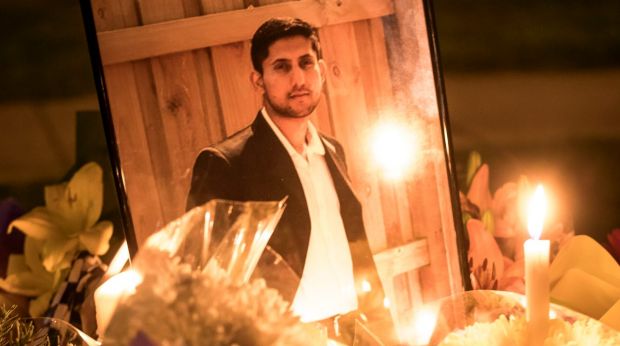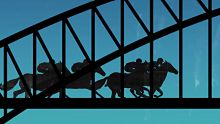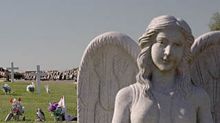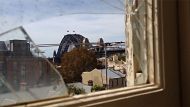Zeeshan Akbar was on the night shift at Queanbeyan's Caltex petrol station on April 7 when two teenage boys allegedly stabbed him to death. The 29-year-old was killed just days after he had applied for his permanent residency in Australia.
His violent death has devastated the lives of many.
More NSW News Videos
Crime spree teens extradited to NSW
A 15-year-old and 16-year-old arrested over Friday's fatal crime spree across Queanbeyan have been extradited to NSW. Vision courtesy ABC News 24.
The apparently random, cruel killing has left his Pakistan-based parents struggling to cope without their sole source of income. Akbar sent money home to cover vital medical fees of a family still recovering from the death of another son, who had drowned when he was just 21.
Friends describe Akbar as responsible, charming and a generous son. He missed his family and had dreamed of bringing them to Australia – to care for his father, who has a failing heart, and to start his own family.
His mother had recently arranged a bride for him. Just last month, Akbar had promised his mother he would settle down and marry.
"He was happy about this," close friend and colleague Hamid Mehmood says. "Things were good for him and he was really happy about it. He was excited about the marriage and he told me the next time he went home he would definitely marry."
Akbar was born in Pakistan's largest city, Karachi. He moved to Melbourne on a student visa in 2009 determined to become a mechanic. He gained a diploma of automotive technology and moved to Queanbeyan in 2015 on a skilled regional visa.
Akbar was introduced to his makeshift family at the Caltex while he was working at another service station in regional Victoria. It took just a 10-minute conversation with Akbar for the manager, Jose Olmos, to know he would fit the group perfectly. As soon as there was an opening, Mehmood was instructed to bring Akbar to Queanbeyan.

He arrived the next day and made friends immediately. The staff regularly dined together after shifts, hiked on weekends and took short trips interstate.
Olmos beams when he speaks of Akbar's thoughtfulness and mischievousness, which occasionally landed him in trouble.

If Akbar thought a customer was having a bad day, he offered them a hug. When people bought cigarettes, he asked for their daily intake and playfully suggested they reduce it by one the next day.
"I would say 'you can't say that, Zeeshany," Olmos says. But the thoughtful Akbar would reply: "But boss, it's bad for them!"
My blood is boiling. He was so young and happy, and now he is gone.
Qaisar Shahzad, Zeeshan Akbar's cousin
When Olmos describes the hole Akbar's loss has left, his voice softens. He recalls setting up for work the morning after the tragedy and expecting Akbar to sneak up and cheekily poke him, as he always did.
Mehmood, 31, says Akbar seamlessly slotted in to their group. They were colleagues but also fast friends. Akbar opened the bowling for their two cricket teams. To celebrate wins, he would cook his local speciality from southern Pakistan, qabli pilau.

In a town far from their homes, they were a family.
Whenever the pair had a day off, they would pile in a car with another friend, Adnan Amgid. They would drive to Cooma, hike in the mountains and explore the caves. They loved the bush and they couldn't believe their luck: they lived in a beautiful and peaceful country, and were determined to enjoy it.

Amgid says he will never forget the first time he met Akbar, when he and a mutual friend picked him up from the airport.
"He was just a stranger but, after 10 minutes, it was like we knew each other so well," Amgid says. "Anyone could feel his positive energy as soon as they met him."
Akbar's cousin, Qaisar Shahzad, says Akbar was due to visit him in Sydney two days after his death. The pair had recently returned from a holiday in Pakistan to visit their family and, hopefully, meet Akbar's future wife.
"When we had been back in Australia for a while, a friend asked if he ever felt homesick and Zeeshan said 'no, Australia is now my home and I will bring my family here, too'."
Shahzad celebrated New Year's Eve at Sydney Harbour with Akbar, who spoke positively of his future plans in the country they had both come to love. He says Akbar could not have imagined he would not live long enough to make his dream a reality.
Akbar's mother was admitted to hospital days after Akbar's death as a result of her grief compounded with her own medical condition, Shahzad says. Akbar's father is also in a poor state, left without income to feed his five other children.
Since the killing, the Canberra and wider community has contributed thousands of dollars to support Akbar's family.
While he appreciates the support, Shahzad says nothing will heal the suffering of Akbar's friends; nothing will bring back a man so dearly loved, who unfairly fell victim to a cruel and unthinkable act.
"My blood is boiling," Shahzad says. "He was so young and happy, and now he is gone.
"This is not bearable for any of us. We want justice."
Zeeshan Akbar's friends are raising funds to support his family in Pakistan. See www.gofundme.com/b875a-queanbeyan-caltex-stabbing-victim.















